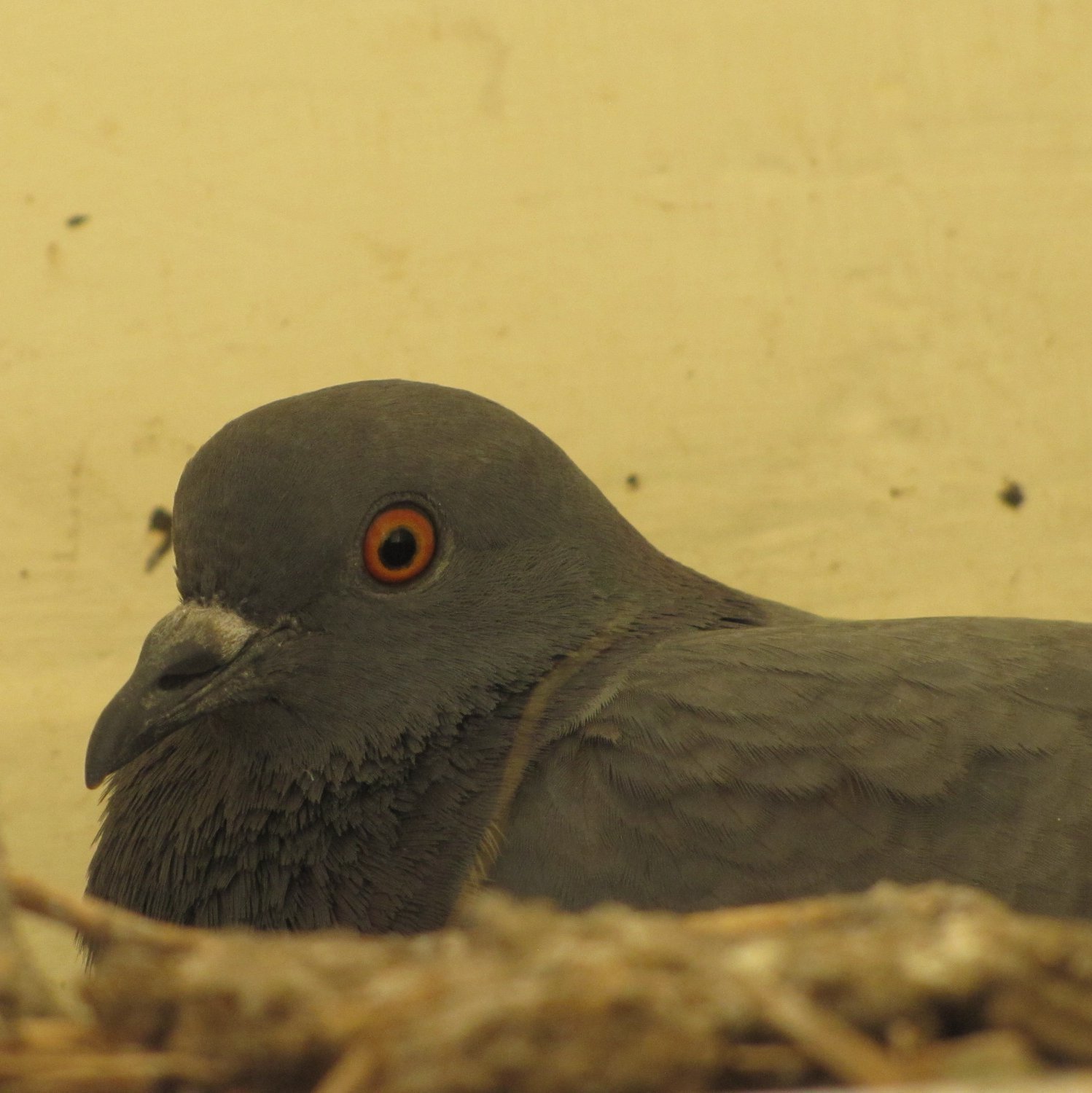
Pigeon
The King of heaven once took the shape of a pigeon-hunter bird (eagle), and Agni, the fire-god, took the shape of a pigeon. The pigeon, while being chased by the eagle, took shelter on the lap of Mahārāja Śibi, and the hunter eagle wanted the pigeon back from the King. The King wanted to give it some other meat to eat and requested the bird not to kill the pigeon. The hunter bird refused to accept the King’s offer, but it was settled later on that the eagle would accept flesh from the body of the King of the pigeon‘s equivalent weight. The King began to cut flesh from his body to weigh in the balance equivalent to the weight of the pigeon, but the mystic pigeon always remained heavier. The King then put himself on the balance to equate with the pigeon, and the demigods were pleased with him. The King of heaven and the fire-god disclosed their identity, and the King was blessed by them. Devarṣi Nārada also glorified Mahārāja Śibi for his great achievements, specifically in charity and protection. Mahārāja Śibi sacrificed his own son for the satisfaction of human beings in his kingdom. And thus child Parīkṣit was to become a second Śibi in charity and protection.
(SB 1.12.20 purport)
Early in the morning they’ll sweep over the whole house—not this apartment, three feet, no, but it is a good house. There is courtyard. Without courtyard, it is pigeon‘s hole. But you like pigeon‘s hole, this big, big skyscraper building containing so many pigeon‘s hole. (laughter)
(750206 – Lecture BG 16.10 – Honolulu)
The pigeons, they eat the stones, particles. They can digest. For them, the hardest peas are supplied. So they can digest. Pāyarā-maṭara. It is called in India, pāyarā-maṭara. Pāyarā means pigeon. Pigeon’s peas. They require such thing.
(731225 – Lecture SB 01.15.47-48 – Los Angeles)
Prabhupāda: You have seen sometimes the pigeons fighting. But a pigeon and crow does not fight, a pigeon and pigeon fights. So this is also another indirect way of love. You’ll see the pigeons, they will fight and again sit down in the assembly of the pigeons, not that the pigeon is going to the assembly of crows. Go on.
(710820 – Lecture SB 01.01.03 – London)
So material activities mean the same thing. You may eat very nice, palatable dishes in the restaurant, but what is that? Eating, that’s all. There is no other philosophy. Simply eating philosophy, that’s all. You may be satisfied with certain type of dishes, and the pigeon will be satisfied simply by certain grains of peas, that’s all. But the pleasure is eating. Similarly, sleeping. When you fall asleep, you do not know whether you are sleeping on a very nice mattress or on the floor. Sometimes you are dreaming that, “I am sleeping on the forest” or “on the seashore.” You forget everything. So sleeping . . . eating, sleeping, mating—sex intercourse. The same enjoyment as the pigeon is enjoying, you are also enjoying. And defending—they are defending by their wings; you are defending by atomic bomb. So there is no difference of quality of life. So Kṛṣṇa, when says: “Stop work,” means stop working like animals, but not to stop working like Kṛṣṇa conscious people are doing—not to stop chanting Hare Kṛṣṇa. Stop you animalistic life and begin your spiritual life. That is the purpose.
(690122 – Lecture BG 05.01-02 – Los Angeles)
